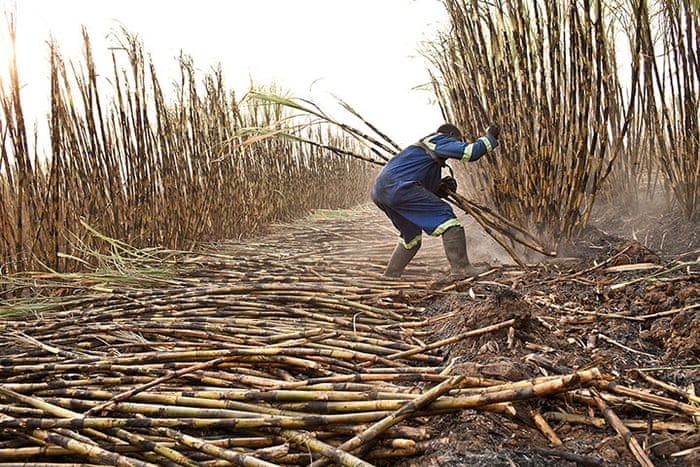I remember exactly how we met.
On my very first day of school
in Lusaka, I showed up in rags, nothing “representable,”
as the teachers called it. My guardians couldn’t afford a uniform either due to
unpreparedness or lack of means. John’s parents gave me some of his clothes
that I wore at least for that particular month. At school, he never mentioned
nor made fun of some happenings. He also never said a word to other school kids.
Just like that, I stepped into
that classroom looking like I belonged.
We were both village boys, new
to the city, trying to outrun the dust and squalor we'd been born into. For a
while, things looked up. School. Shoes. Friendship. But John's life hadn't
started softly.
Him being a friend, I would
learn and understand his life like my own.
He was born in Bimbe Village,
a small, forgotten speck in south-eastern Chongwe District, tucked kilometers
from Chalimbana. The village drew life from the Chalimbana River, a persistent
vein in Soli land, though Lenjes like John's family had settled there from
Mungule in Chibombo. Ba Lenje, bantashi.
Bene chishi!!
His birth came on the cusp of
January 2000, as the world braced for the Y2K bug, a chilling spectre
threatening to crumble digital infrastructure, from power grids to banks.
Programmers scrambled globally, but a primal panic swelled too: religious
leaders and survivalists proclaimed it the End
of Days, blending tech glitches with apocalyptic prophecies. Economic
collapse, nuclear meltdowns, a plunge into pre-industrial darkness, millenarian
zeal fuelled stockpiles for the final reset.
In Bimbe, nobody knew
computers. The nearest clinic was over ten kilometers away in Chongwe's central
business district, so John entered the world at home, his umbilical cord buried
in the village soil. While half the world fretted over a computer bug, the
other half birthed babies in huts, cut off from proper healthcare. A stark
contradiction of realities.
His mother, young and
restless, left him at three months old with her own mother, Subeta, to seek
work in town.
Subeta was... different.
Not Sabetha, her Christian
name. In Bimbe, names bent to the land's tongue: Subeta. She walked like a
soldier, talked like a Pentecostal preacher, fought like both combined.
“If
someone touches my blood,” she'd say, tying her chitenge tight at the back like
a boxer, “I won’t ask for the story. I’ll
write it myself.”
Like the people of Umuofia in
Chinua Achebe’s No Longer at Ease, she believed the fox must be chased first;
only then can the hen be warned against wandering in the bush. Villagers
whispered she once trailed a drunk who insulted her niece to the market and
slapped him into next week. Unconfirmed, but it felt true.
She had one child, Rabecca, from a man named Chanda who vanished before the girl could walk. Life plodded on as it always does, hard, dusty, sun-baked.
Subeta hustled, her ventures
dramatic. A trip to Itezhi-Tezhi for fish resale brought back more than stock:
a fisherman husband, trading free kapenta for her capricious affection.
Subeta’s fisherman husband looked like a question mark somebody had
forgotten to straighten out: shoulders drooping so low they practically waved
at his knees, back bent in a permanent apology to gravity. The village kids
swore that on windy days his silhouette looked exactly like a fishhook, and
even the chickens stopped pecking to watch him pass, probably wondering if he
was coming or going.
As expected, their love was tumultuous.
Their grass-thatched mud
rondavel reeked of dried fish and resentment. One scorching afternoon, Mr Fisherman
asserted authority, targeting young John, must have been out of clumsiness,
defiance or both. The boy stumbled into the kitchen, tears streaming.
Subeta, who was cooking
something at the fireplace, didn't turn immediately.
When she heard, her breathing
drowned out the chickens.
“Tell
me,”
she commanded, “how did you get so
comfortable putting hands on my grandson?”
“This boy needs discipline!
I’m the man here!” He scoffed.
Subeta’s eyes narrowed. “No. You were a discount. A bag of free fish.
You are nothing.”
She slapped him; his palm-leaf
cap spun like a coin. A brutal fight erupted. Minutes later, he was out,
hessian sack full of his belongings, tossed into the dust. He vanished to Itezhi-Tezhi
or wherever Subeta’s exes went. Bimbe never saw or heard of him again.
John grew under Subeta's
wings, but the streets whispered when adults weren't listening. He found fast
boys who laughed at rules, slept through lessons. He craved their boldness, the
fear they inspired.
At ten, a cousin from Lusaka
visited, finding him shoeless, eating cold nshima, wandering like a retired old
man.
“This child will die here,” the cousin said. “He should be in class, not a water boy for an old woman.”
And so, John was taken to
Lusaka. For a while, things looked up. School. Shoes. Even meeting me.
Years rolled by.
John was constantly pressured
to work hard, to be better, but the echoes of Bimbe’s neglect were too loud.
School felt like a prison. The streets and the easy acceptance of the wrong
crowd beckoned.
Teenage John now ran with a
small-time crew that stole whatever they could carry. Not big crimes. Bags.
Scrap metal. Chibuku crates. Sampo silema,
was their mantra.
"Just be the eyes, John. That’s all you gotta do. A quick twenty
minutes, and you got cash for weeks," whispered Linos, the gang leader,
his face hidden in the shadows.
The target that night was the
local Chibuku brewery factory, adjacent to the cemetery. John was the lookout,
his heart pounding a frantic rhythm against his ribs.
"I
don't like this, Linos," John hissed, peering over the wall.
"The guard looks twitchy tonight."
"Relax! He's dead-asleep," Linos sneered. "If he wakes up, you whistle. Simple."
John waited. The silence was
broken only by the distant clink of metal. Then, a sharp, frantic shout from
inside the factory compound: "Stop! I've
called the police!"
John spun around to whistle,
but before the sound left his lips, a blinding flash and a deafening report
split the night. A bullet tore into his chest.
He collapsed instantly, the
cold cemetery dust filling his final sight. The gang scattered. The responding
police officer, answering the guard's distress call, lowered his firearm, his
face pale in the light of the security guard’s torchlight.
John’s body hit the ground
like a sack of maize. His world instantly went dark.
He was dead.
And.
I was the cop on duty who
pulled that trigger. His day one kindness has just been repaid, ungratefully
so.







